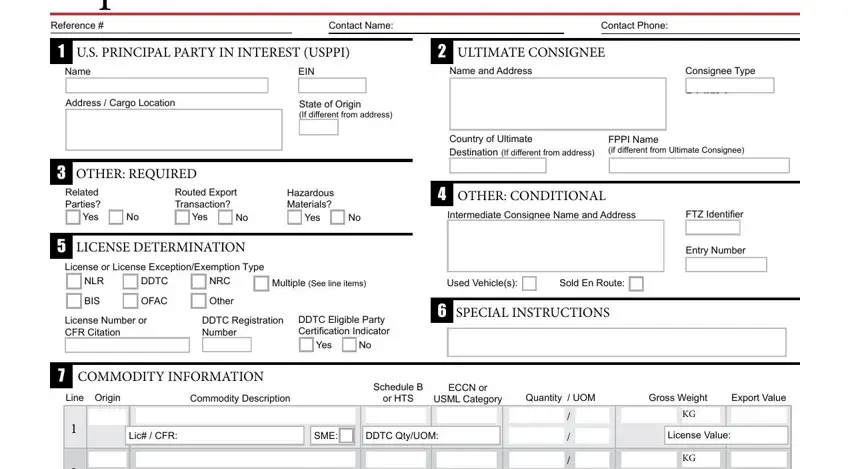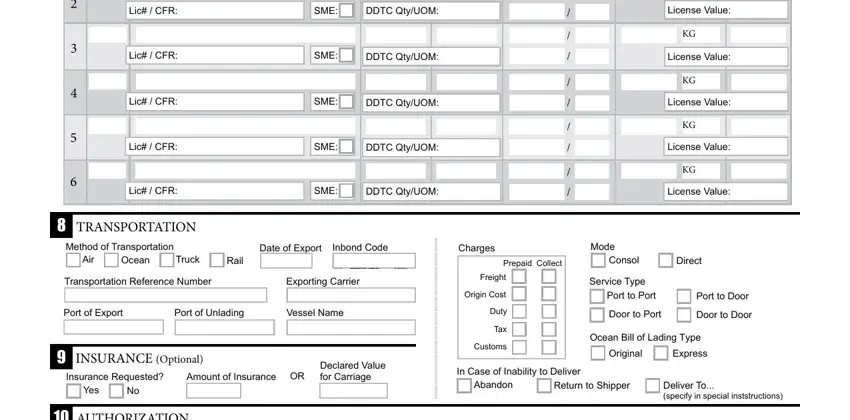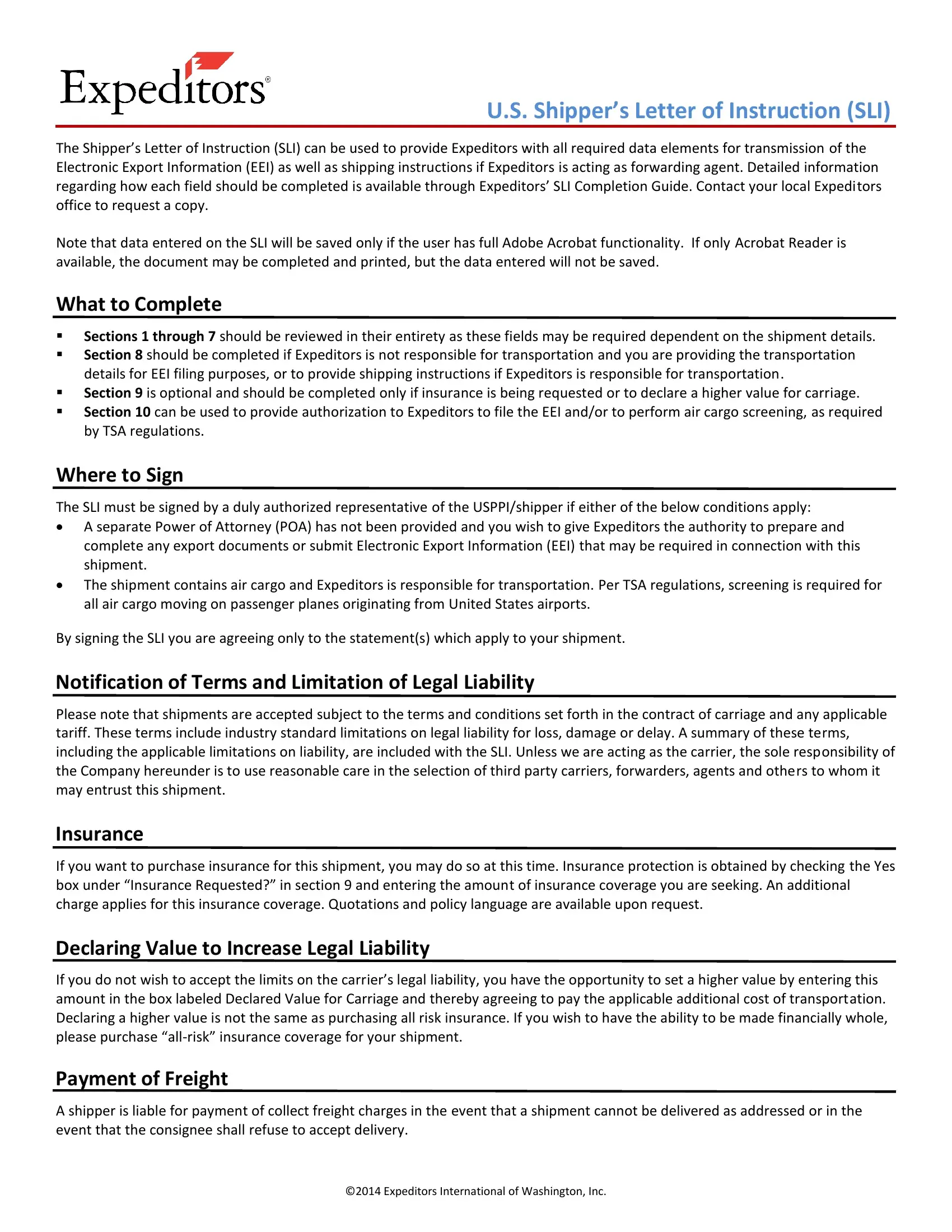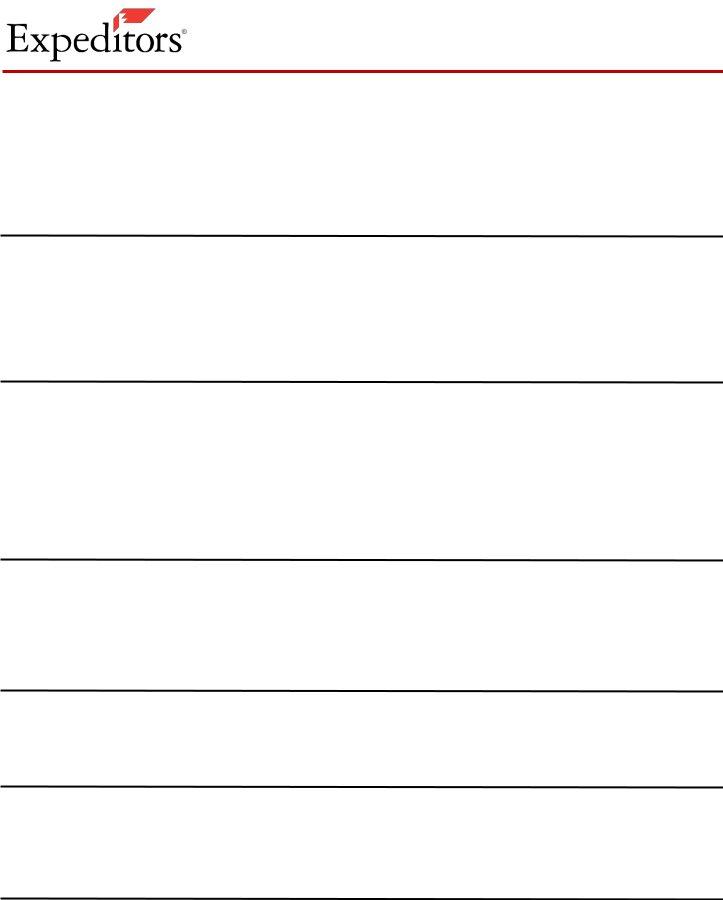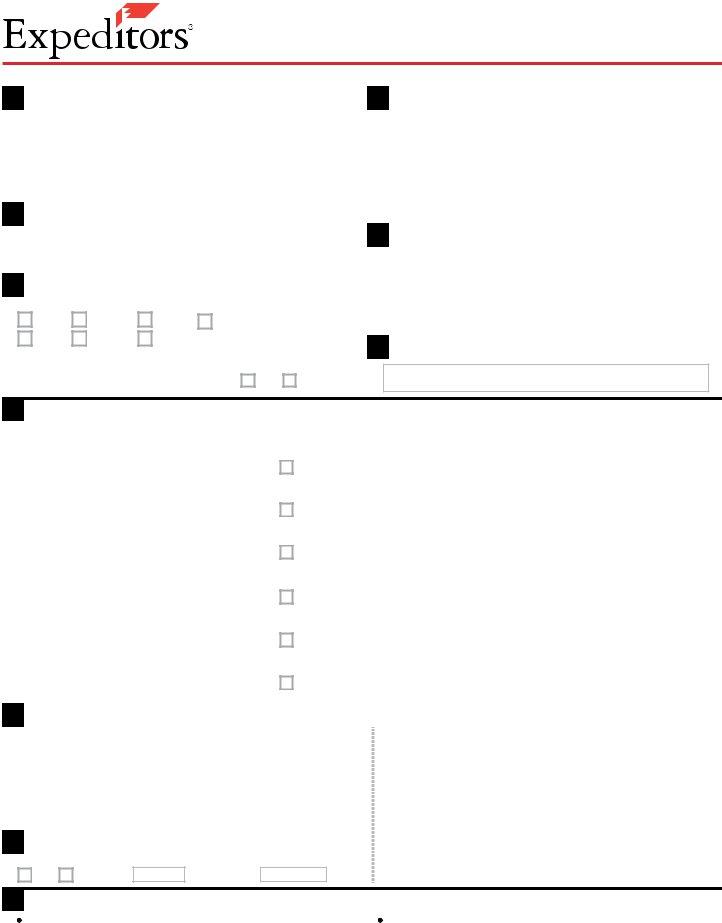This notice includes some important terms and conditions for carriage. Additional terms and conditions, including Definitions, Advances of Funds, Notice of Arrival of Goods, Notice of Claim and other provisions are included herein by reference to the transport document, copies of which are available on request.
IF THE CARRIAGE INVOLVES AN ULTIMATE DESTINATION OR STOP IN A COUNTRY OTHER THAN THE COUNTRY OF DEPARTURE, THE WARSAW CONVENTION [AIR] OR THE CARRIAGE OF GOODS BY SEA ACT [SEA] MAY BE APPLICABLE AND WILL GOVERN AND IN MOST CASES LIMIT THE LIABILITY OF THE CARRIER IN RESPECT OF LOSS, DAMAGE OR DELAY TO CARGO, UNLESS A HIGHER VALUE IS DECLARED IN ADVANCE BY THE SHIPPER AND A SUPPLEMENTARY CHARGE PAID IF REQUIRED.
THE WARSAW CONVENTION LIMITS THE LIABILITY OF CARRIER OR AIR FREIGHT FORWARDER TO U.S. $9.07 PER LB (U.S. $20 Per Kilogram) OR THE EQUIVALENT IN MOST CASES.
OTHER CARRIAGE AND STORAGE IS SUBJECT TO SIMILAR LIMITATIONS. SEE BELOW.
AIR WAYBILLS
(1)INTERNATIONAL CARRIAGE:
(a)Carriage hereunder is subject to the rules relating to liability established by the Convention for the Unification of Certain Rules relating to International Carriage by air, signed at Warsaw, October 12, 1929 (hereinafter called “the Convention” or “the Warsaw Convention”) or that convention as amended at The Hague, September 28, 1955, whichever may be applicable, unless such carriage is not “International Carriage” as defined by the Convention.
(b)To the extent not in conflict with the foregoing, carriage hereunder and other services performed by each Carrier are subject to (i) applicable laws (including national laws implementing the Convention), government regulations, orders and requirements, (ii) provisions herein set forth, and (iii) applicable tariffs, rules, conditions of carriage, regulations and timetables (but not the times of departure and arrival therein) of such Carrier, which are made part hereof and which may be inspected at any of its offices.
(c)Any Carrier’s name may be abbreviated on the face of an Air Waybill, and the full name and its abbreviation may be set forth in such Carrier’s tariffs, rules, conditions of carriage, regulations or timetables. The first direct Carrier’s address is the airport of departure shown on the face of an Air Waybill. The agreed stopping places (which may be altered by Carrier in case of necessity) are those places, except the place of departure and the place of destination, set forth on the face of an Air Waybill or shown in Carriers’ timetables as scheduled stopping places for the route. Carriage to be performed hereunder by several successive Carriers is regarded as a single operation.
(2)LIMITATION OF LIABILITY OF CARRIER FOR DOMESTIC CARRIAGE: Except as otherwise provided in the conditions of carriage, in carriage to which the Warsaw Convention does not apply, Carrier’s liability shall not exceed U.S. $9.07 per lb (U.S. $20 per kilogram) or the equivalent of goods lost, damaged, or delayed, unless a higher value is declared by Shipper and a supplementary charge paid.
(3)DECLARATION OF VALUE:
(a)Shipper acknowledges that he has been given an opportunity to make a special declaration of the value of the goods shipped and that the sum entered on the face of this Shipper’s Letter of Instructions as “Declared Value For Carriage”, if in excess of U.S. $9.07 per lbs (U.S. $20 per kilogram) or the equivalent, constitutes such special declaration of value if a supplementary charge has been paid. If any supplementary charges for declaration of value in excess of $20.00 per kilogram are assessed as a percentage of the value of the cargo, then such percentage shall be deemed to be of the total value and not of the excess over $20.00 per kilogram.
(b)If the sum entered on the face of the Shipper’s Letter of Instructions or on the face of an Air Waybill as “Declared Value for Carriage” represents an amount in excess of the applicable limits of liability referred to in the above Notice and in these Conditions, and if Shipper has paid any supplementary charge that may be required by Carrier’s tariffs, conditions of carriage or regulations, this shall constitute special declaration of value and in this case Carrier’s limit of liability shall be the sum so declared. Payment of claims shall be subject to proof of actual damages suffered.
(c)For both domestic and international carriages (the latter subject to the Warsaw Convention) if Shipper does not declare value for carriage, the liability of Carrier is limited to the actual value of goods lost or damaged up to a maximum of U.S. $9.07 per lb, regardless of the value Shipper declared for customs.
(4)CARRIER’S LIABILITY FOR DAMAGED GOODS: Except as the Convention or other applicable law may otherwise require: (a) Carrier is not liable to Shipper or to any other person for any damage, delay or loss of whatsoever nature (hereinafter collectively referred to as “damage”) arising out of or in connection with the carriage of the goods, unless such damage is proved to have been caused by the negligence or willful misconduct of Carrier and there has been no contributory negligence of Shipper, consignee or other claimant; (b) Carrier is not liable for any damage directly or indirectly arising out of compliance with laws, government regulations, orders, or requirements, or from any cause beyond Carrier’s control;
(c)If the charges for carriage having been based upon the value declared by Shipper, it is agreed that any liability shall in no event exceed Shipper’s declared value for carriage stated on the face hereof, and in the absence of such declaration by Shipper, liability of Carrier shall not exceed U.S. $9.07 per lb (U.S. $20 per kilogram) or the equivalent of goods destroyed, lost, damaged or delayed; all claims shall be subject to proof of value.
(5)WEIGHT OF GOODS USED FOR ASSESSING DAMAGES: In cases of loss, damage or delay of part of the consignment, the weight to be taken into account in determining Carrier’s limit of liability shall be only the weight of the package or packages concerned. Carrier has the right to request supporting evidence from the shipper to verify the actual weight of the consignment. Notwithstanding any other provisions, for “foreign air transportation” as defined by the U.S. Federal Aviation Act: 1) in the case of loss of, damage or delay to a shipment, the weight to be used in determining the carrier’s limit of liability shall be the weight which is used to determine the carriage of such shipment; and 2) in the case of loss of, damage or delay to a part of a shipment, the shipment weight in 1) above shall be prorated to the package covered by the same air waybill whose value is affected by the loss, damage or delay. The weight in the case of loss or damage to an article within a package shall be the weight of the entire package.
(6)AGENTS OF THE CARRIER: Any exclusion or limitation of liability applicable to Carrier shall apply to and be for the benefit of Carrier’s agents, servants and representatives and any person whose aircraft is used by Carrier for carriage and its agents, servants and representatives. For purposes of this provision Carrier acts herein as agent for all such persons.
(7)FORWARDING, REFORWARDING, OR ON CARRIAGE BY EXPEDITORS: The goods, or packages said to contain the goods, described on the face hereof, are accepted for carriage from their receipt at Carrier’s office or airport terminal at the place of departure to the airport at the place of destination. If so specifically agreed, the goods, or packages said to contain the goods, described on the face hereof, are also accepted for forwarding to the airport of departure and for reforwarding beyond the airport of destination. If such forwarding or reforwarding is by carriage operated by Carrier, such carriage shall be upon the same terms as to liability as set forth in paragraphs 1, 2 and 4 hereof. In any event, the issuing Carrier and last Carrier, respectively, in forwarding or reforwarding the goods, shall do so only as agents
of the Shipper, owner, or consignee, as the case may be, and shall not be liable for any damage arising out of such additional carriage, unless proved to have been caused by its own negligence or willful misconduct. Shipper, owner and consignee hereby authorize such Carriers to do all things deemed advisable to effect such forwarding, including, but without limitation, selection of the means of forwarding or reforwarding and the routes thereof (unless these have been herein specified by Shipper), execution and acceptance of documents of carriage (which may include provisions excluding or limiting liability) and consigning of goods with no declaration of value, notwithstanding any declaration of value in this Shipper’s Letter of Instructions or an Air Waybill.
(8)SUBSTITUTION OF CARRIERS: It is agreed that no time is fixed for the completion of carriage hereunder and that Carrier may without notice substitute alternate Carriers or aircraft. Carrier assumes no obligation to carry the goods by a specified aircraft or over any particular route or routes or schedule, and Carrier is hereby authorized to select, or to deviate from, the route or routes of shipment notwithstanding that the same may be stated on the face hereof or on the face of an air waybill. Shipper guarantees payment of all charges and advances.
(9)UNPAID COLLECT CHARGES: A direction by the Shipper/Consignor that shipment be delivered “Freight Collect” or “Freight Payable At Destination” is insufficient to relieve the Shipper/Consignor of liability for unpaid freight charges upon the failure of the consignee to pay the freight charges in the absence of a written agreement to the contrary between Shipper and Carrier. In the event that consignor requests that a freight collect shipment be released to consignee free of freight charges, it is understood that consignor has agreed to pay these charges.
(10)NOTICE OF CLAIM:
(a)Shipper or person entitled to delivery must make a complaint in writing to the Carrier for damage, loss, delay or non-delivery. Notice of damage must be given, in most instances, within 7 days of receipt. See Air Waybill for specific terms.
(b)The complaint shall sufficiently describe the goods concerned and contain the approximate date and details of the damage.
(c)Any rights to damages against Carrier shall be extinguished unless an action is brought within two years from the date of arrival at the destination, or from the date on which the cargo ought to have arrived, or from the date on which the transportation stopped.
OCEAN BILLS OF LADING
(11)APPLICABLE LAW: The ocean bill of lading issued to you by the Carrier transporting your cargo will contain, or refer to, Laws, Acts and/or Conventions that limit the carrier’s liability for loss of or damage to your cargo incurred while the cargo is in its custody.
(12)LIMITATION OF LIABILITY: In most cases in which the carrier is liable for loss or damage to your goods, the carrier’s liability is limited to U.S. $500.00 per package or, for goods not shipped in packages, per customary freight unit. Higher compensation will be paid only when the shipper declares a higher value for the goods shipped and so states in the ocean bill of lading and additional freight is paid. In that case, the amount of the declared value shall be substituted for that limit.
WAREHOUSING
(13)LIABILITY FOR DAMAGED GOODS: The warehouse endeavors to exercise reasonable care and diligence in regard to your goods. In the event that the warehouse fails to exercise such reasonable care, it shall be liable only for such loss or damage caused to the goods that could have been avoided by the exercise of such care.
(14)LIMITATION OF LIABILITY: In the case of loss or damage that results from the failure of the warehouse to exercise such care, the amount of liability shall be limited to U.S. $.50 per pound, maximum $50.00 per lot.
(15)OPTIONAL INCREASE OF WAREHOUSE’S LIABILITY: The shipper may increase the warehouse’s stated liability limits on part or all of the shipper’s goods by making written request to the warehouse. Such request may be made either at the time of the signing of the storage agreement or within a reasonable time after the signing of the agreement. The warehouse may, in return for increasing its liability, increase its storage charges commensurate with its increase in liability.
(16)STATUTE OF LIMITATIONS: The warehouse receipt (or contract) contains reasonable provisions as to the time and manner of presenting claims and instituting actions based on claims arising out of the storage of the shipper’s goods. These provisions will also govern where a suit may be brought.
GENERAL PROVISIONS
(17)INSURANCE: When the Shipper or consignee requests insurance, Carrier or forwarder will effect coverage at Shipper’s expense under its open policy, subject to all of the terms and limitations thereof. Such open policy includes the following cargo clauses: (a) all risks, and (b) War, strikes, riots and civil commotions.
(18)ALTERATION OF CONTRACT PROVISIONS: No agent, servant or representative of Carrier has authority to alter, modify or waive any provision of this contract.
(19)SHIPPER’S COMPLIANCE WITH APPLICABLE LAWS: Shipper shall comply with all applicable laws, customs and other government regulations of any country to, from, through or over which the goods may be carried, including those relating to the packing, carriage, or delivery of the goods, and shall furnish such information and such documents as may be necessary to comply with such laws and regulations. Carrier is not liable to Shipper or any other person for loss or expense due to Shipper’s failure to comply with this provision.
(20)LIEN: (1) The Carrier shall have a lien on the Goods which shall survive delivery, for all freight, dead freight demurrage, damages, loss, charges, expenses and any other sums whatsoever payable by or chargeable to or for the account of the Shipper under this Contract of Carriage and any contract preliminary hereto and the cost and expenses of recovering the same and may sell Goods privately or by public auction without notice to the Shipper. If, on sale of the Goods, the proceeds fail to cover the amount due and the cost and expenses incurred, the Carrier shall be entitled to recover the deficit from the Shipper. (2) If the Goods are unclaimed during a reasonable time, or whenever in the Carrier’s opinion the Goods will become deteriorated, decayed, or worthless, the Carrier may, at his discretion and subject to this lien and without any responsibility attaching to him, sell, abandon, or otherwise dispose of such Goods solely at the risk and expense of the Shipper.
(21)SUITABILITY FOR TRANSPORT: The acceptance, by the Carrier, of any article, shall not be deemed to be an acknowledgement that the article is suitable for transportation.
(22)SEVERABILITY OF CONTRACT TERMS: Insofar as any provision contained or referred to herein or in the applicable Air Waybill, ocean bill of lading or warehouse contract may be contrary to mandatory law, government regulations, orders, or requirements, such provision shall remain applicable to the extent that it is not overridden thereby. The invalidity of any provision shall not affect any other part hereof. Omission of any information from a transport document does not invalidate the document or the limitations of liability.
